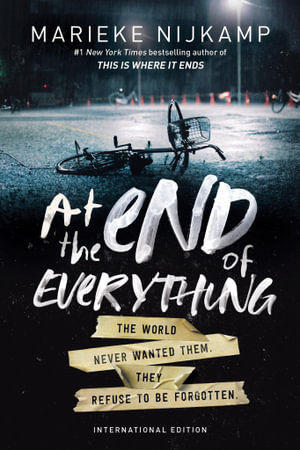At the end of everything by Marieke Nijkamp

Set within the Hope Juvenile Treatment Centre, this story is for the forgotten ones in the time of a severe and catastrophic plague, but perhaps also at any time. The haemorrhagic illness (much like the pneumonic plague of the past) is wildly infectious and impacts the wider community rapidly. The incarcerated and troubled teens who are protected by guards are abandoned by their captors without notice and must survive on their own. The gates may be open, but is leaving the best option? Survival is not ensured, and food supplies will run out unless they learn to work together. Because all the young characters come with their own histories of problems, learning to work together and trust each other is a slow process. For Logan, there is the added problem because of her disability, and when her twin, Leah, becomes infected she must deal with added isolation. Emerson is transgender and is learning who they are. Grace and Casey have their own history of abandonment and struggle that led them to this ‘rehabilitation’ home, but they must set the past aside to have any hope for a future for the remnant residents.
Written almost like a dystopian story or survival tale, this story was written during Covid times so will resonate with current teen readers who have lived through their own times of pandemic. It comes with its own content warning prologue: ‘This book deals with ableism, abuse, death, illness and implied eugenics, imprisonment, and transphobia. In addition, it includes mentions of assault, blood, gunshots, racial profiling, and sexual violence.’ This is not an easy tale, but it is a powerful story of teens on the outer who need to rise above their circumstances and work together. There are moments of great poignancy as they deal with the ever-present risk of death and illness, and the loss of connection with society. I would recommend this to mature readers aged 15+ who can cope with the significant issues that it raises.
Themes: Plague, Illness, Youth imprisonment, Transgender, Disability, Violence.
Carolyn Hull